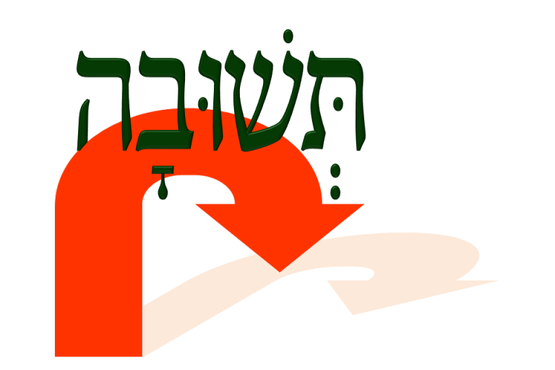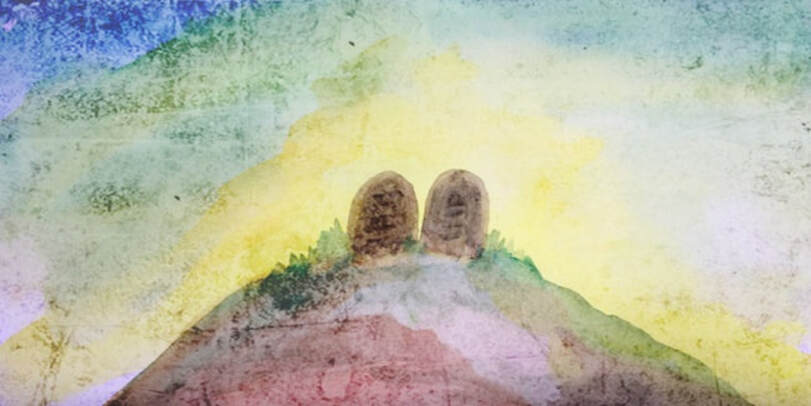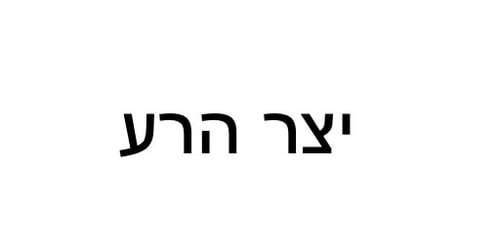|
9/25/2022 Shabbat Shuvah 5783, 2022: “U’Teshuvah u’Tefilah u’Tzdakah Ma’avirin et Roah Hagezerah”Read Now Rabbi David Etengoff Dedicated to the sacred memories of my mother, Miriam Tovah bat Aharon Hakohen, father-in-law, Levi ben Yitzhak, sister, Shulamit bat Menachem, sister-in-law, Ruchama Rivka Sondra bat Yechiel, Chana bat Shmuel, Yehonatan Binyamin ben Mordechai Meir Halevi, Shoshana Elka bat Avraham, Tikvah bat Rivka Perel, Peretz ben Chaim, Chaya Sarah bat Reb Yechezkel Shraga, Shmuel Yosef ben Reuven, Shayndel bat Mordechai Yehudah, the Kedoshim of Har Nof, Pittsburgh, and Jersey City, the refuah shlaimah of Mordechai HaLevi ben Miriam Tovah, and the health and safety of our brothers and sisters in Israel and around the world. The Netaneh Tokef prayer is one of the most emotionally expressive tefilot in the Nusach Ashkenaz and Nusach Sefard machzorim, so much so that one of its passages brings many of us to tears each time it is recited: On Rosh Hashanah it [that is, our judgment] will be inscribed, and on Yom Kippur it is sealed—how many shall pass away and how many shall be born, who shall live and who shall die, who in good time, and who by an untimely death, who by water and who by fire, who by sword and who by wild beast, who by famine and who by thirst, who by earthquake and who by plague, who by strangulation and who by stoning, who shall have rest and who wander, who shall be at peace and who pursued, who shall be serene and who tormented, who shall become impoverished and who wealthy, who shall be debased, and who exalted. (Translation, www.Sefaria.org with my emendations) Following the chazan’s repetition of this section, the entire congregation cries aloud: “u’teshuvah u’tefilah u’tzdakah ma’avirin et roah hagezerah--but repentance, prayer and charity remove the evil of the decree!” (Translation, ArtScroll Machzor) This is an incredibly powerful affirmation of the transformative nature of teshuvah, tefilah and tzedakah when they are combined into one spiritual unit, for, then, even a negative decree against us, as individuals and as a nation, can be nullified. In Mishneh Torah, Hilchot Teshuvah 2:4, the Rambam (1135-1204) renders a p’sak (halachic conclusion) that is congruent with the phrase, “u’teshuvah u’tefilah u’tzdakah ma’avirin et roah hagezerah”: “Among the paths of repentance is for the penitent to constantly call out before G-d, crying and entreating, and to perform charity according to his potential…” (Translation, Rabbi Eliyahu Touger) My rebbe and mentor, Rabbi Joseph B. Soloveitchik zatzal (1903-1993), known as “the Rav” by his students and followers, examines this statement in a deeply penetrating manner. In so doing, he elucidates the meaning of “to constantly call out before G-d, crying and entreating”: Herein it is explained that there is a special kind of tefilah to be undertaken by the ba’al teshuvah, namely, tefilah shel tza’akah—prayer of crying out [from the depths of one’s being], and the unique category of this form of prayer appears to be none other than the selichot (penitential prayers), which are, [by definition,] tefilah shel tza’akah, rather than standard prayer. As such, we are accustomed to say the selichot aloud, as this is a part of the fulfillment of the crying out of the ba’al teshuvah. Following this, the Rav analyzes the phrase, “to perform charity according to his potential”: It appears to me that this is the very reason why the parsha concerning the Mishkan (Portable Desert Sanctuary) appears immediately after the parsha of the Chet HaEgel (Sin of the Golden Calf), since it is one of the paths of teshuvah [for the ba’al teshuvah] to give tzedakah. [As such,] the voluntary offerings that went toward the work of [constructing] the Mishkan were in the category of tzedakah to bring about kapparah (expiation) upon their souls. (Sefer Harrerei Kedem, vol. 1, page 76, translations and brackets my own) These insights provide a trenchant interpretation of the relationship of teshuvah to tefilah and tzedakah. Tefilah of teshuvah is given voice in the selichot, which are the ultimate representation of tefilah shel tza’akah. Tzedakah of teshuvah engenders kapparah al nafshoteinu, expiation for our very being. With Hashem’s help, may our heartfelt teshuvah, tefilah shel teshuvah, and tzedakah shel teshuvah unite to remove the roah hagezerah from upon us, so that we may be inscribed in the Sefer HaChaim (the Book of Life). V’chane yihi ratzon. Shabbat Shalom v’Gamar Chatimah Tovah Past drashot may be found at my blog-website: http://reparashathashavuah.org. Please contact me at [email protected] to be added to my weekly email list. *** My audio shiurim on the topics of Tefilah and Tanach may be found at: http://tinyurl.com/8hsdpyd *** I have posted 164 of Rabbi Soloveitchik’s English language audio shiurim (MP3 format) spanning the years 1958-1984. Please click on the highlighted link: The Rav
0 Comments
 Rabbi David Etengoff Dedicated to the sacred memories of my mother, Miriam Tovah bat Aharon Hakohen, father-in-law, Levi ben Yitzhak, sister, Shulamit bat Menachem, sister-in-law, Ruchama Rivka Sondra bat Yechiel, Chana bat Shmuel, Yehonatan Binyamin ben Mordechai Meir Halevi, Shoshana Elka bat Avraham, Tikvah bat Rivka Perel, Peretz ben Chaim, Chaya Sarah bat Reb Yechezkel Shraga, Shmuel Yosef ben Reuven, Shayndel bat Mordechai Yehudah, the Kedoshim of Har Nof, Pittsburgh, and Jersey City, the refuah shlaimah of Mordechai HaLevi ben Miriam Tovah, and the health and safety of our brothers and sisters in Israel and around the world. Parashat Nitzavim, the concluding parasha of 5782 and the prelude to Rosh Hashanah, promises that Hashem will gather us unto Him, regardless of how far away we may be: “Even if your exiles are at the end of the heavens, Hashem, your G-d, will gather you from there, and He will take you from there.” (Sefer Devarim 30:4, this and all Tanach translations, The Judaica Press Complete Tanach with my emendations) The reason Hashem will bestow this kindness upon us is presented earlier in Parashat Va’etchanan: And from there you will seek Hashem your G-d, and you will find Him, if you seek Him with all your heart and with all your soul. When you are distressed, and all these things happen upon you in the end of days, then you will return to Hashem, your G-d, and obey Him.” (4:29-30) This theme of teshuvah is reiterated in our parasha, as well: “And you will return to Hashem, your G-d (v’shavta od Hashem Elokecha), with all your heart and with all your soul, and you will listen to His voice according to all that I am commanding you this day you and your children.” (30:2) In his Commentary on the Torah, the Ramban zatzal (Nachmanides, 1194-1270) suggests the following explanation of this pasuk: The meaning thereof is that you will return “with all your heart, and with all your soul,” and you will take it upon yourself and upon your children throughout their generations to do “according to all that I command you this day,” just as they did at the second redemption [that is, the redemption from Babylon], as it is written, “They joined with their brethren, their noblemen, and entered the curse and the oath to follow the Law of G-d, which was given through Moshe, the servant of G-d, and to keep and perform all the commandments of Hashem our L-rd, and His ordinances and His statutes.” (Sefer Nechemiah 10:30, Ramban translation, Rabbi Dr. Charles B. Chavel, with my emendations) In sum, for the Ramban, the essence of teshuvah consists in fealty to the Torah: “to keep and perform all the commandments of Hashem our L-rd, and His ordinances and His statutes.” Another way to understand the connection that obtains between teshuvah and the Torah is to focus on the incredible power of returning to Hashem. Rabbi Moshe Chaim Ephraim of Sudlikov zatzal (1748-1800), grandson of the holy Bal Shem Tov zatzal (d. 1760) and author of Degel Machane Ephraim, cites a “game changing” interpretation of the phrase, “v’shavta od Hashem Elokecha” from his saintly grandfather: “And you will return to Hashem, your G-d…” I heard from my master, my grandfather, may he be remembered for a blessing and life in the World to Come, that this is similar in kind to an individual who brings a light to a place of darkness. [At that point,] the darkness goes completely away, and it is no longer recognized at all. So, too, is it the case when one returns in teshuvah, even though he was originally in a place of darkness. For when one kindles the light of Torah, then the darkness [of who he once was] goes completely away. (Likutim Parashat Nitzavim, translation and brackets my own) This is the time of the year when we long for the fulfillment of Yirmiyahu the prophet’s stirring words: “Hashiveinu Hashem alecha v’nashuvah— Cause us to return unto You, Hashem, and we will return!” (Megillat Eichah 5:21) With the Almighty’s help, may the light of the Torah we kindle drive the darkness from our lives, and bring the Mashiach soon and in our days. V’chane yihi ratzon. Shabbat Shalom v’Kativah v’Chatimah Tovah Past drashot may be found at my blog-website: http://reparashathashavuah.org. Please contact me at [email protected] to be added to my weekly email list. *** My audio shiurim on the topics of Tefilah and Tanach may be found at: http://tinyurl.com/8hsdpyd *** I have posted 164 of Rabbi Soloveitchik’s English language audio shiurim (MP3 format) spanning the years 1958-1984. Please click on the highlighted link: The Rav  Rabbi David Etengoff Dedicated to the sacred memories of my mother, Miriam Tovah bat Aharon Hakohen, father-in-law, Levi ben Yitzhak, sister, Shulamit bat Menachem, sister-in-law, Ruchama Rivka Sondra bat Yechiel, Chana bat Shmuel, Yehonatan Binyamin ben Mordechai Meir Halevi, Shoshana Elka bat Avraham, Tikvah bat Rivka Perel, Peretz ben Chaim, Chaya Sarah bat Reb Yechezkel Shraga, Shmuel Yosef ben Reuven, Shayndel bat Mordechai Yehudah, the Kedoshim of Har Nof, Pittsburgh, and Jersey City, the refuah shlaimah of Mordechai HaLevi ben Miriam Tovah, and the health and safety of our brothers and sisters in Israel and around the world. Our parasha contains a statement that poses a distinct exegetical challenge: “This day (hayom hazeh), Hashem, your G-d, is commanding you to fulfill these statutes (chukim) and ordinances (mishpatim)...” (Sefer Devarim 26:16, this and all Tanach translations, The Judaica Press Complete Tanach) Since countless chukim and mishpatim are found in preceding parshiot of the Torah, what does the phrase, hayom hazeh, signify? In his Commentary on the Torah, Rashi (1040-1105) maintains that our phrase teaches us: “each and every day they [the mitzvot] should be in your eyes as if they are new (chadashim) [to you], as if you were commanded [for the first time in their regard] today.” (Translation and brackets my own) This interpretation has powerful ramifications since, by actualizing its message, we can avoid the robotic fulfillment of mitzvot decried by Yeshayahu the prophet as mitzvat anashim m’lumdah. (Sefer Yeshayahu 29:13) His words find their clearest exposition in the commentary on Sefer Yeshayahu of the Malbim (Rabbi Meir Leibush ben Yechiel Michel, 1809-1879): There are those who perform the mitzvot solely because this is what they have become accustomed to do since their youth and they are used to performing them. They perform them without any cognitive gesture (kavanah) and without thought—even though they may know that they are commandments from G-d. They, however, do not perform them in any way because Hashem commanded them to do so. Instead, they perform them because this is what they were dictated to do by their teachers and parents. They [the mitzvot] are performed without any understanding and are mere mechanical actions reinforced by past rote behaviors… (29:13, translation and underlining my own). Perhaps Rashi had this in mind when he focused on the notion of ensuring the daily newness of the mitzvot. The Midrash Tanchuma offers additional insights, emphasizing the beloved nature (chavivut) of the Torah: “And what does the phrase, ‘hayom hazeh,’ come to teach us? In truth, Moshe said to the Jewish people: ‘Each and every day the Torah should be chavivah to you, as if this very day you received it from Har Sinai…’” (Warsaw edition, Parashat Ki Tavo I, translation my own) Two additional approaches are presented by the Midrash Tannaim. The first addresses the way the Jewish people willingly and eagerly received the teachings of Moshe Rabbeinu: “This day (hayom hazeh), Hashem, your G-d, is commanding you,” yet, is it not the case that the Jewish people already had the mitzvot for 40 years! Nonetheless, the Torah deploys the term, “hayom hazeh!” This is coming to teach you that since Moshe taught them the Torah and they accepted it with equanimity (b’safer panim yaffot), the Omnipresent One considered this as if it was the very same day they accepted the Torah from Har Sinai. (This and the following translation my own) The next midrashic statement gives powerful voice to the direct relationship between Revelation and Torah study: Whenever the Jewish people are actively engaged in Torah study, the Holy One blessed be He considers it as if they received the Torah from Sinai on that very day; therefore, the text states, “This day (hayom hazeh), Hashem, your G-d, is commanding you.” May the insights provided by our sages guide us on our path of Torah observance. May Hashem’s mitzvot ever be new and beloved in our eyes, and may our Torah study enable us to reexperience the Revelation at Har Sinai anew, each and every day. V’chane yihi ratzon. Shabbat Shalom v’Kativah v’Chatimah Tovah Past drashot may be found at my blog-website: http://reparashathashavuah.org. Please contact me at [email protected] to be added to my weekly email list. *** My audio shiurim on the topics of Tefilah and Tanach may be found at: http://tinyurl.com/8hsdpyd *** I have posted 164 of Rabbi Soloveitchik’s English language audio shiurim (MP3 format) spanning the years 1958-1984. Please click on the highlighted link: The Rav  Rabbi David Etengoff Dedicated to the sacred memories of my mother, Miriam Tovah bat Aharon Hakohen, father-in-law, Levi ben Yitzhak, sister, Shulamit bat Menachem, sister-in-law, Ruchama Rivka Sondra bat Yechiel, Chana bat Shmuel, Yehonatan Binyamin ben Mordechai Meir Halevi, Shoshana Elka bat Avraham, Tikvah bat Rivka Perel, Peretz ben Chaim, Chaya Sarah bat Reb Yechezkel Shraga, Shmuel Yosef ben Reuven, Shayndel bat Mordechai Yehudah, the Kedoshim of Har Nof, Pittsburgh, and Jersey City, the refuah shlaimah of Mordechai HaLevi ben Miriam Tovah, and the health and safety of our brothers and sisters in Israel and around the world. Our parasha begins with the well-known verse: “When you go out to war against your enemies (oivecha), and Hashem, your G-d, delivers him into your hands, and you take his captives.” (Sefer Devarim 21:10, this and all Tanach translations, The Judaica Press Complete Tanach, with my emendations) In his Commentary on the Torah on our pasuk, Rashi zatzal (1040-1105) presents the position of the Midrash Sifrei (Sefer Devarim 21:1) noting that it is referring to a volitional war (milchemet reshut), rather than an obligatory war (milchemet mitzvah), in which one is proscribed from taking captives. As is often the case, Rashi’s gloss sets the stage for our verse’s interpretation by many other exegetes. An alternate mode of analysis focuses on the spiritual ramifications of our pasuk that are particularly apropos during Chodesh Elul, the month dedicated to teshuvah (returning to Hashem). One of the champions of this approach is the Katav Sofer zatzal (Rabbi Avraham Shmuel Binyamin Sofer, 1815-1871), who, like others in this school of thought, identifies the term “oivecha” in our verse with the yetzer harah (evil inclination). He cites a statement from Talmud Bavli, Kiddushin 30b that depicts the power of the yetzer harah: “Rabbi Shimon ben Levi says: ‘… And if not for the fact that the Holy One, Blessed be He, assists each person in battling his evil inclination, he could not overcome it.’” (Translation, The William Davidson Talmud, Rabbi Adin Steinsaltz zatzal, editor) The Katav Sofer suggests that a person might easily misconstrue the intent of this epigrammatic phrase and think: “He should not go out to war against the yetzer harah. Moreover, he should not undertake any actions to conquer him; instead, he should trust in Hashem, Who will help him by waging His great war [against the evil inclination] on his behalf.” (Sefer Katav Sofer, Parashat Ki Tetze, this and the following translations and brackets my own) The Katav Sofer immediately dismisses such a passive strategy to conquering the yetzer harah: Aval haemet lo kane hu—But the truth is not like this at all, for one who thinks like this will never conquer the yetzer harah from controlling him. Rather, a person must ever be at war with his evil inclination according to the limits of his power, and engage in every possible tactic, for then, he will be helped min hashamayim (from Heaven). As our Sages state (Talmud Bavli, Shabbat 104a): “One who comes to purify themself [from their sins] will be helped [from Heaven in so doing].” In sum, according to the Katav Sofer, a person must begin the process to purify himself from sin and then and, only then, Heaven will help him. In his estimation, there are two partners in the war against the yetzer harah, and by extension, the teshuvah process, namely, Hashem and the Jewish people. Crucially, however, while we are confident that Hashem will come to our aid, we must be the ones to initiate this spiritual transformation. I believe we can apply the Katav Sofer’s mode of thought to the concluding mishnah of Masechet Yoma: Rabbi Akiva said: “How fortunate are you, Israel; before Whom are you purified, and Who purifies you? It is your Father in Heaven,” as it is stated: ‘And I will sprinkle purifying water upon you, and you shall be purified.’ (Sefer Yechezkel 36:25). And it says: ‘The hope (mikvei) of Israel is Hashem.’ (Sefer Yirmiyahu 17:13). Just as a mikvah purifies the impure, so too, the Holy One, Blessed be He, purifies Israel. (Translation, The William Davidson Talmud, Rabbi Adin Steinsaltz zatzal, editor, with my emendations) Rabbi Akiva teaching that, “just as a mikvah purifies the impure, so too, the Holy One, Blessed be He, purifies Israel,” is parallel to our earlier citation from Talmud Bavli, Shabbat 104a: “One who comes to purify themself [from their sins] will be helped [from Heaven in so doing].” Just as we must first immerse ourselves in the mikvah so that Hashem will remove our spiritual impurity, so, too, must we begin the teshuvah process so that Hashem will join and aid us in returning unto Him. This idea is reminiscent of two pasukim in parashat teshuvah: “And from there you will seek Hashem your G-d, and you will find Him, if you seek Him with all your heart and with all your soul… For Hashem your G-d is a merciful G-d; He will not shun you or destroy you; neither will He forget the covenant of your fathers (brit avotecha), which He swore to them.” (Sefer Devarim 4:29 and 31) May the time come soon and, in our days, when the entire Jewish people will return to Hashem, so that we may witness the complete fulfillment of brit avotecha. V’chane yihi ratzon. Shabbat Shalom Past drashot may be found at my blog-website: http://reparashathashavuah.org. Please contact me at [email protected] to be added to my weekly email list. *** My audio shiurim on the topics of Tefilah and Tanach may be found at: http://tinyurl.com/8hsdpyd *** I have posted 164 of Rabbi Soloveitchik’s English language audio shiurim (MP3 format) spanning the years 1958-1984. Please click on the highlighted link: The Rav |
Details
Archives
July 2024
AuthorTalmid of Rabbi Soloveitchik zatzal Categories |
- Blog: Rabbi David Etengoff: Parashat HaShavuah
- Sefer Bereishit 5784&5785
- Sefer Shemot 5784&5785
- Sefer Vayikra 5784&5785
- Sefer Bamidbar 5784 &5785
- Sefer Bereishit 5782&5783
- Sefer Shemot 5782&5783
- Sefer Vayikra 5782&5783
- Sefer Bamidbar 5782&5783
- Sefer Devarim 5782&5783
- Sefer Bereishit 5780& 5781
- Sefer Shemot 5780&5781
- Sefer Vayikra 5780&5781
- Sefer Bamidbar 578&5781
- Sefer Devarim 578&5781
- Sefer Bereishit 5778&5779
- Sefer Shemot 5778&5779
- Sefer Vayikra 5778&5779
- Sefer Bamidbar 5778&5779
- Sefer Devarim 5778&5779
- Sefer Bereishit 5776&5777
- Sefer Bereishit 5774&5775
- Sefer Bereishit 5772&5773
- Sefer Bereishit 5771&5770
- Sefer Shemot 5776&5777
- Sefer Shemot 5774&5775
- Sefer Shemot 5772&5773
- Sefer Shemot 5771&5770
- Sefer Vayikra 5776&5777
- Sefer Vayikra 5774&5775
- Sefer Vayikra 5772&5773
- Sefer Vayikra 5771&5770
- Sefer Bamidbar 5776&5777
- Sefer Bamidbar 5774&5775
- Sefer Bamidbar 5772&5773
- Sefer Bamidbar 5771&5770
- Sefer Devarim 5776&5777
- Sefer Devarim 5774&5775
- Sefer Devarim 5772&5773
- Sefer Devarim 5771&5770
 RSS Feed
RSS Feed
